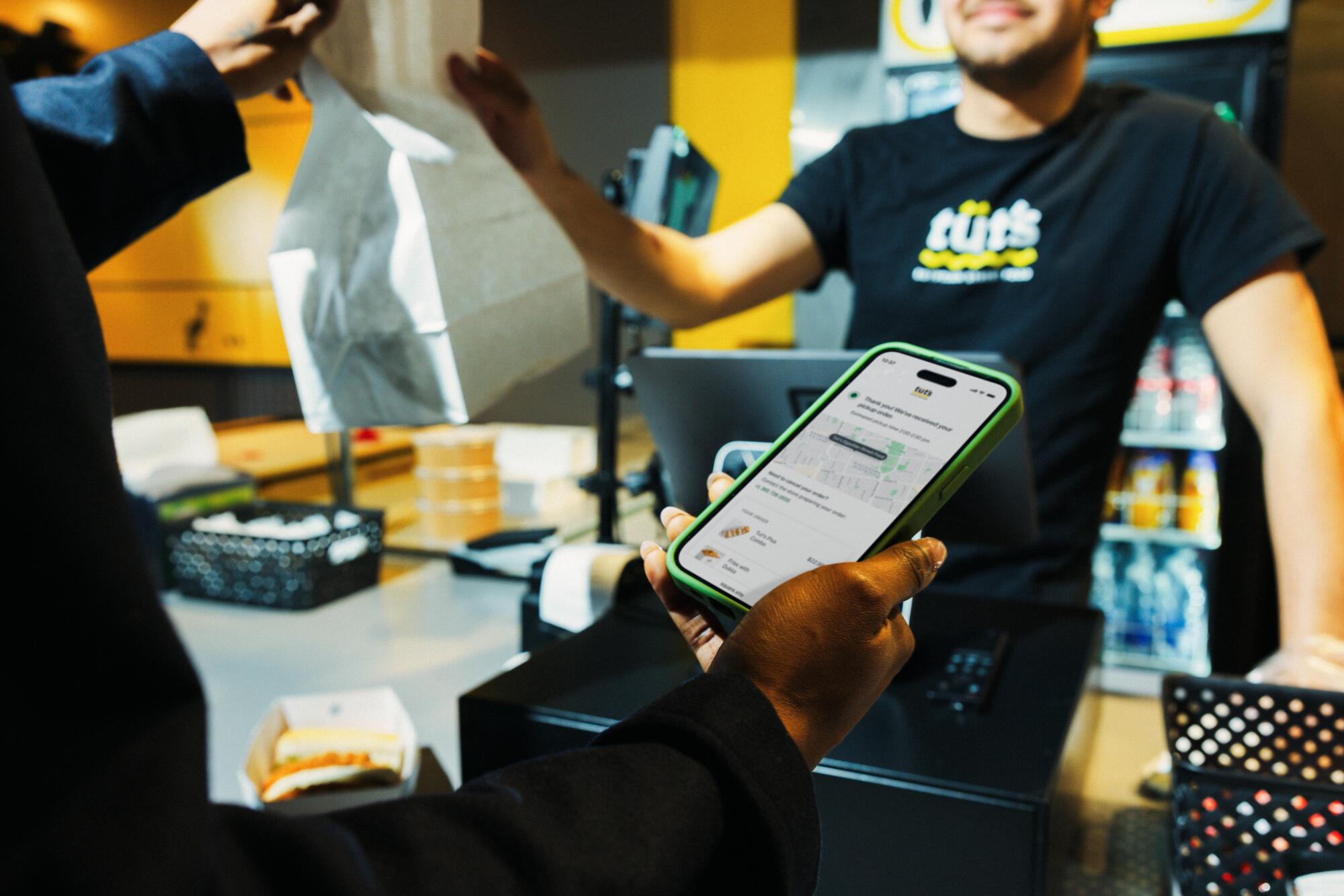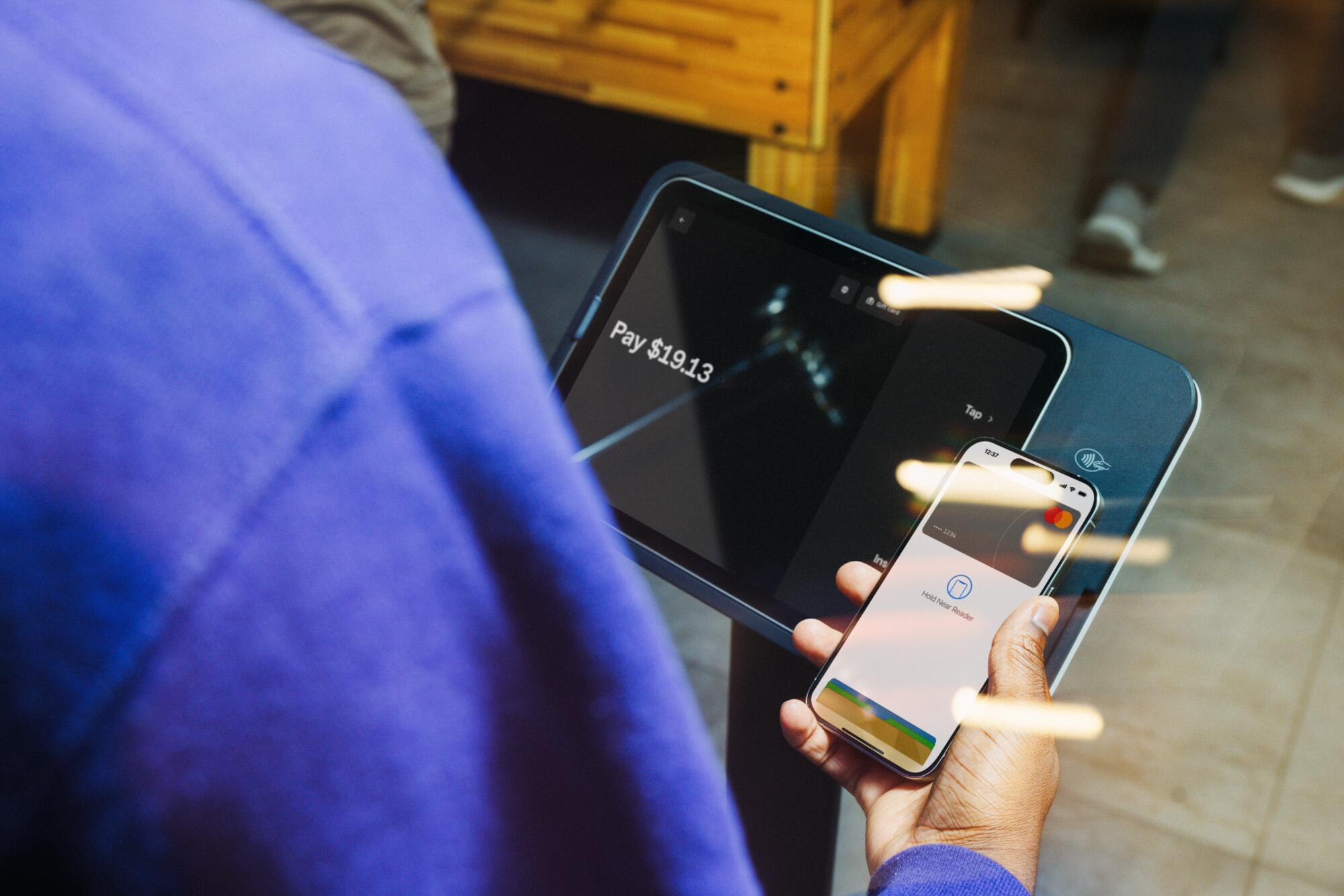Before launching Tut’s Egyptian Street Food, Amr Elmazariky spent over a decade in engineering. But his true passion was feeding people. When hosting friends for lunch and dinner became more fulfilling than being an engineer, he took the leap into entrepreneurship.
That leap became Tut’s, which opened its first location on King Street in downtown Toronto in 2020 – yes, at the onset of the pandemic. But what turned out to be one of the most challenging times for restaurateurs ended up giving a boost to the new business. Amid lockdown restrictions, food delivery orders boomed – and so did interest in Tut’s signature sandwiches.
Tut’s – short for Tutankhamun – pays homage to Elmazariky’s Egyptian roots. On the menu? Bold flavours, authentic recipes and sandwiches served on freshly-baked Fino bread, a soft and light bread roll.
“We try to stay true to our Egyptian identity as much as we can, but we want to stay connected to our community,” says Tut’s founder and CEO Elmazariky. “Being in North America, we have modified a little bit of the recipes to make them appealing to the general public.”
That cultural blend comes through in the sandwich fillings. From traditional Alexandria street food staples such as Kebda (beef liver) to crowd-pleasers like crispy fried chicken and vegan-friendly options, there’s something for everyone.
Today, Tut’s is a rapidly growing chain with several locations across Ontario. The King Street West location, smack in the middle of Toronto’s entertainment district, has also become a post-clubbing staple for hungry party-goers.
As the business took off and stayed popular on third-party delivery apps, Elmazariky realized he needed to maintain control over the customer relationship. That’s where Square came in.
Owning the customer experience beyond the transaction
At least 40-50% of Tut’s orders are pickup and takeout. Third-party food delivery apps bring benefits like volume and reach, but they come with trade-offs: High fees, limited brand control and no access to customer data. Before switching to Square, Elmazariky had limited visibility into customer behaviour. From a marketing standpoint, it was a missed opportunity. “It’s a transactional thing. There’s no lifecycle for the customers,” he says.
Tut’s isn’t just about grabbing a sandwich. From the bold Egyptian spices to the Arabic menu item names, it’s about creating an experience. Without customer contact information and in-depth insights, there was no way to connect the dots between the first sandwich bite and the next visit.
Promoting specials on apps like Uber Eats or DoorDash is one thing. Building a relationship through personalized, data-driven offers? That’s a different game. Tut’s needed to own the customer experience beyond the initial transaction to build on its success.
Streamlining orders and building direct customer relationships
Enter Square Online. “When we switched to Square, we had our own website, but we converted that to the Square website because of how seamless the integration is. And it’s so simple. It’s easy for people to use. We always try to push people to order off Square Online,” shares Elmazariky. “We prefer it way more than third-party apps.”
Square integrates with third-party delivery apps, which helps streamline online orders. But Tut’s encourages customers to order through Square Online for the data it provides. “How many [orders are from] repeat customers? Are they enrolled in the loyalty program or not? What kind of promotions are they redeeming?” explains Elmazariky. Asking these questions – and actually getting answers – helps the team tailor marketing campaigns. For example, Tuts can incentivize orders placed during certain periods of the day. “If we do a loyalty promotion from two to five P.M., there’s a boost in points,” he adds.
To further enhance customer experience, Tut’s is now rolling out Square Kiosk, starting with its Waterloo location. The area is known for its student population, and Elmazariky expects that a lot of students are going to be ordering through the self-serve kiosk.
“A lot of people just want to go in, order and leave. They don’t want an interaction,” says Elmazariky. “For example, I do that at McDonald’s. I don’t go to the cashier anymore, I know what I want. I order it and skip the line.”
Regulars who know that they want the same Ferakh (chicken) sandwich as usual can quickly place their orders – no small talk required. But the benefits extend beyond speed. New customers who want more time to browse the menu can take their time without being worried about holding up the line.The self-serve experience puts the client in control and offers a more comfortable, personalized way to place an order.
Turning one-time transactions into lasting connections
Thanks to Square tools, Tut’s has gained more control over digital ordering while building stronger relationships with customers, whether they’re Egyptian expats looking for a taste from home or Egyptian street food first-timers.
The data provided by Square helps Tut’s turn previously anonymous transactions into lasting connections. “We can send them coupons and automated marketing [campaigns]”, says Elmazariky. “We can reach them and let them know about new offers and items. With third-party delivery apps, we don’t have access to that.”
By owning the full customer journey, Tut’s can create a more cohesive brand experience across every channel. It’s about meeting people where they are, whether they’re stumbling out of a club in search of comfort food, craving Dukka fries between classes or looking to order a plant-based meal at home.
Tut’s is continuing its expansion through franchises. But the Waterloo location is close to Elmazariky’s heart. “It’s all fun. Everything is exciting. When I first moved to Canada, I did my master’s here in Waterloo. I’m really excited we’re opening there.”
![]()
![]()
















